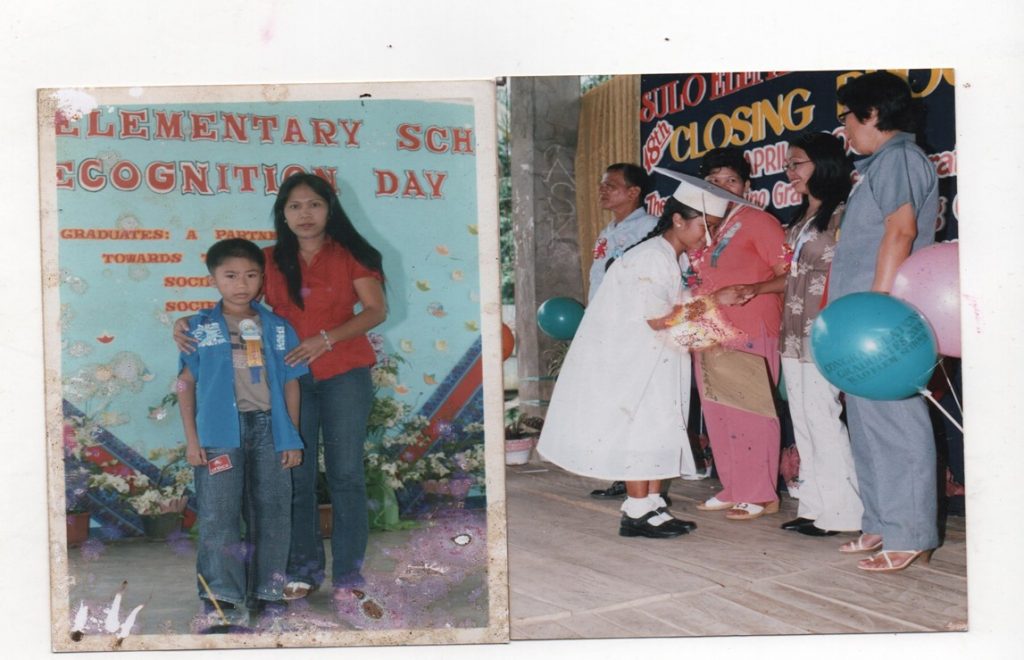When you are in an impoverish situation, you feel like your hands are tied and you could barely move. The tight grip of the rope on your wrists limits your movement; it can even make you feel helpless. No matter how much you struggle, you will always end up in the prison cell of your unfortunate condition. But not when you are given the right tools to make it out.
From the small town of Sulo, Naga in Zamboanga Sibugay, Tumacas Family will tell us how they managed to free themselves from the bondage of poverty.
Tumacas, which by the way is a Tagalog word that literally translates to “escaped” (how fitting to our theme, right?), is a champion of success brought about by hard-work, perseverance, discipline, and social interventions.
In a recent interview by a Social Worker, Marites B. Tumacas, the loving wife of Dionesio Tumacas and a mother of two, reckoned the struggles the family had to go through before they even became beneficiaries of the Pantawid Pamilyang Pilipino Program.
START OF CAPTIVITY
Her husband, Dionesio, is a rubber tapper at a nearby small cooperative earning a meager 120 pesos a day that covers food, transportation allowance, school expenses of children, and other expenses. With 2 children, both of which are attending school, one in high school and the other in college, it was a constant torment for Marites and her husband to budget their earnings day in and day out. She remembered having to weep on her tear-stained daster at night while she prays for better days to come.
Dionesio’s salary, no matter how they stretch and wisely spend it, clearly just cannot suffice the needs of the family. He needed to look for alternatives, a part-time job, anything that could augment their earning. Despite enormous effort, there is not much opportunity in the province and few job vacancies were usually a skills mismatch for someone who did not finish college education. Hence, when it is season, and while Dionesio is at work, Marites helps by assisting her neighbor harvest grains in the rice field in exchange for rice grains for her family’s consumption. The scorching heat of the sun is nothing compared to her fiery determination to feed her family. By doing this, she is able to get one sack of rice grains for every five sacks that they harvest.
Even that, it is still a hard knock life for the Tumacas family. While the parents have managed to put food on their table for them, the scarcity of financial resources led them to settle in a decrepit “kubo” that was made of light materials, a roof made of nipa palm that leaks when the angry rain falls. In the Philippines, the wet season begins in June and ends in October. This is also when the family, almost every night, bath in their sleep or takes shelter under an umbrella that serves as their band aid protection from the droplets of water that fall from the holes of the roof. Marites recounted: if you look up inside the house, it is as if the house is a free billboard full of posters and random plastics of chips that they stick to the roof to cover the holes. In the afternoon when the sun is up, they will be greeted by sun rays that poke from tiny openings of the roof.
Impoverishment had hit them so bad that it put her dreams of becoming a teacher one day on the back burner. But she had always wanted her children to have a bright future ahead of them and she knew that it can only be possible through education.
Desperate to send her kids to school, she recalls looking for opportunities where her children can get quality education with little cost.
“It was like my heart was stabbed by a tip of a needle when I saw my son cried because I could not let him take the scholarship grant from a private school because we cannot afford to get him a dormitory and provide for his daily meal allowance,” she described.
Her son, Justin Jay, graduated as Salutatorian in elementary and would have been able to take advantage of a scholarship offer from a private school but it was the additional expenses such as the boarding house rent and daily allowance that forced the parents to step back from such an opportunity.
Aside from the educational expenses that the Tumacas family are tied in, they are also burdened by some health issues that both Marites and Dionesio are seemed to be cut from the same cloth. Dionesio suffers from psoriasis and hypertension while she suffers from cervical polyps and hypertension as well. They have been advised to avoid stress and too much strenuous activities but their past financial status left them with no option but to toil and plow the neighbor’s farm to make a living or else they have nothing to put in their mouth.
ESCAPE TOOL
When you are held captive, you should keep an alert mind and be mindful of the opportunities. One must look for tools to free himself and use these opportunities to further optimize the chances of getting out (of poverty, in this case).
Marites was over the moon the moment she found out she was considered for the Pantawid Pamilyang Pilipino Program on October 2012. She thought that this is their opportunity, their tool to help alleviate them from the bonds of poverty that they are tied to.
Since then, she had made sure that the money they were getting from the 4Ps cash grant was put to good use, the way it was supposed to. She went back to the academe to pursue a Secondary Education course and graduated with flying colors in 2014. A year after that, she took and passed the Licensure Examination for Teachers (LET) and was immediately absorbed as a full time Secondary teacher at Sulo National high school in the same year (2015). Sometimes, things have their way of working out when you least expect it.
She also learned about the various programs and services that the government agencies offer for the welfare of the marginalized families through her attendance to Family Development Sessions (FDS). It was as if her blindfolds were taken off of her eyes and her hands were untied and doors of opportunities have opened for them when she learned about these services.
Thereafter, she noticed that their life began to get better. Their membership to the governments’ program enabled them both, her daughter and her, obtain their college diplomas and are now both full time teachers at Sulo National High School. Her son, Justin Jay, is completing his final year in Criminology.
Through her husband’s Phil health, one of the inherent benefits for being a 4Ps member, Marites was able to go under the knife that removed her cervical polyps. On top of that, they are now able to buy maintenance medicines for hypertension and afford regular medical check-ups.
Being a member of the 4Ps did not only help the Tumacas family in the financial aspect. More importantly, it empowered Marites, to know some of her basic human rights especially those that are stipulated in the provisions of VAWC. In fact, she has helped at least 2 troubled teens who were allegedly sexually abused by their own father.
Tumacas or in Tagalog “escaped” rightfully describes Marites’ situation. Through determination, hard work and perseverance Tumacas family had eventually escaped and freed themselves from the bondage of extreme poverty.








You must be logged in to post a comment.